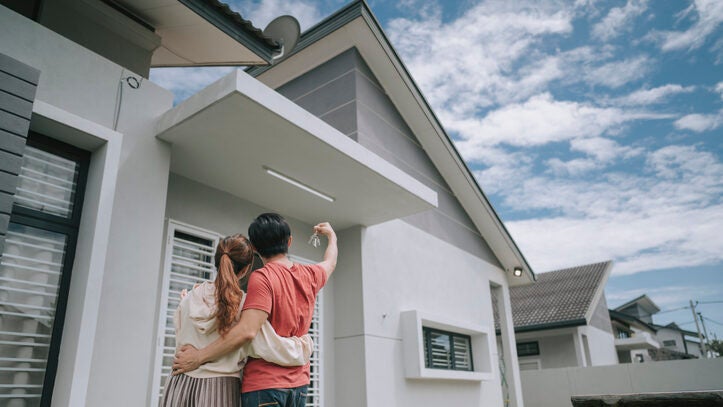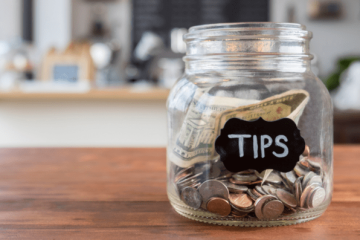Purchasing your first home is a significant milestone, often accompanied by excitement and anxiety. Navigating the home-buying process can be daunting, especially when it comes to securing a loan.
First home buyer loan is designed to make this process easier, offering various benefits and assistance programs. This guide aims to provide a comprehensive overview of what to expect and how to prepare for obtaining your first home buyer loan.
Understanding First-Time Home Buyer Loans
First-time home buyer loans are special financing options aimed at individuals purchasing their first home. These loans often come with favorable terms, such as lower interest rates, reduced down payments, and assistance with closing costs. They are designed to make homeownership more accessible, especially for those who might struggle to save for a significant down payment.
Types of First-Time Home Buyer Loans
- FHA Loans: Backed by the Federal Housing Administration, FHA loans are popular among first-time buyers due to their lenient credit requirements and low down payments, typically as low as 3.5%.
- VA Loans: Available to veterans, active-duty service members, and certain members of the National Guard and Reserves, VA loans are backed by the Department of Veterans Affairs and often require no down payment or private mortgage insurance (PMI).
- USDA Loans: These loans, guaranteed by the United States Department of Agriculture, are designed for rural and suburban home buyers who meet certain income requirements. USDA loans offer zero down payment and competitive interest rates.
- Conventional Loans: Some conventional loans cater to first-time home buyers by offering lower down payment options and more flexible credit requirements. These loans are not backed by the government but can be a good option for those with strong credit.
- State and Local Programs: Many states and local governments offer first-time home buyer programs that provide down payment assistance, low-interest loans, and other benefits. These programs vary widely, so it’s essential to research what is available in your area.
Preparing for Your First Home Loan
Assess Your Financial Health
Before diving into the home buying process, take a close look at your financial situation. Calculate your monthly income, expenses, and debt. Lenders will scrutinize your finances to determine your ability to repay the loan, so it’s crucial to have a clear understanding of your financial health.
Check Your Credit Score
Your credit score plays a significant role in determining your loan eligibility and interest rates. A higher credit score can result in better loan terms. Obtain a copy of your credit report and review it for errors. If your score is lower than desired, take steps to improve it, such as paying down debt and making timely payments.
Save for a Down Payment
While some loan programs offer low or no down payment options, having savings for a down payment can provide more flexibility and better loan terms. Aim to save at least 3-5% of the home’s purchase price, but more is always better.
Create a Budget
Determine how much you can afford to spend on a home by creating a budget. Factor in monthly mortgage payments, property taxes, insurance, maintenance, and other homeownership costs. This budget will help you set realistic expectations and avoid financial strain.
Get Pre-Approved
Getting pre-approved for a mortgage gives you a clear picture of how much you can borrow and shows sellers that you are a serious buyer. During pre-approval, the lender will review your financial information and credit history. This step can streamline the home buying process and make your offers more competitive.
The Home Buying Process
Choose the Right Loan
Based on your financial situation and eligibility, select the loan program that best fits your needs. Consider factors like down payment requirements, interest rates, and loan terms. Consult with a mortgage advisor to understand your options and make an informed decision.
Find a Real Estate Agent
A knowledgeable real estate agent can guide you through the home buying process, help you find suitable properties, and negotiate on your behalf. Look for an agent experienced with first-time buyers and familiar with the local market.
Start House Hunting
With your budget and loan pre-approval in hand, begin searching for your new home. Attend open houses, schedule viewings, and explore different neighborhoods. Keep your priorities in mind, but be open to compromise.
Make an Offer
Once you find the right home, work with your real estate agent to make a competitive offer. Your agent will help you craft an offer that aligns with market conditions and your budget. Be prepared for negotiations and potential counteroffers.
Home Inspection and Appraisal
After your offer is accepted, hire a professional home inspector to evaluate the property’s condition. The inspection will identify any issues that need addressing before finalizing the purchase. Additionally, your lender will require an appraisal to ensure the home’s value matches the loan amount.
Finalize Your Loan
With the inspection and appraisal complete, work with your lender to finalize the loan. This process involves providing any additional documentation, securing homeowners insurance, and completing the necessary paperwork. Review the loan terms carefully before signing.
Closing
Closing is the final step in the home buying process. During the closing meeting, you will sign the loan documents, pay closing costs, and receive the keys to your new home. Closing costs typically include fees for the loan origination, title insurance, and other expenses.
Tips for Success
Stay Organized
Keep all your financial documents, loan paperwork, and correspondence organized. Staying on top of deadlines and required documents will help prevent delays and ensure a smooth process.
Communicate with Your Lender
Maintain open communication with your lender throughout the process. If you have any questions or concerns, don’t hesitate to ask. Understanding each step of the loan process will help you feel more confident and informed.
Be Patient
The home buying process can take time, and unexpected issues may arise. Stay patient and flexible, and work closely with your real estate agent and lender to address any challenges.
Continue Saving
Even after purchasing your home, continue to save money for future expenses. Homeownership comes with ongoing costs, such as maintenance and repairs, so having a financial cushion is essential.
Educate Yourself
Take advantage of home buyer education programs and resources. Many lenders and housing organizations offer workshops and online courses to help first-time buyers understand the process and make informed decisions.
Conclusion
Purchasing your first home is a significant achievement, and securing the right loan is a crucial part of the process. By understanding the types of first-time home buyer loans available, assessing your financial health, and preparing thoroughly, you can navigate the home buying journey with confidence. Remember to stay organized, communicate with your lender, and continue educating yourself to make the most informed decisions possible. With careful planning and the right support, you’ll be well on your way to becoming a proud homeowner.



